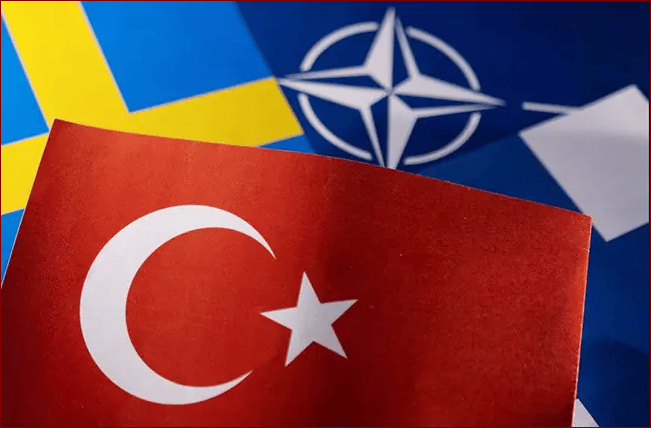Swedish Prime Minister Ulf Kristersson will seek Turkey’s approval for his country’s bid to join NATO during talks on Tuesday in Ankara with President Tayyip Erdogan, who has stalled the process and accused Sweden of harbouring militants.
Along with Finland, Sweden applied to join NATO in May in response to Russia’s invasion of Ukraine. Turkey had objected over security concerns related to the banned Kurdistan Workers Party (PKK) and other groups, and over the Nordic states’ arms-export bans.
The three sides signed a memorandum in June that lifted Turkey’s veto and obligated Sweden and Finland to address its remaining concerns.
Erdogan was set to host Kristersson at the presidential palace on Tuesday afternoon, with a news conference scheduled for 1530 GMT.
Foreign Minister Tobias Billstrom told Swedish Radio on Saturday his country’s new government would distance itself from the Syrian Kurdish YPG militia in its bid to win Turkey’s support for its membership of the Western defence alliance.
Turkey views the YPG as an extension of the PKK, which launched an insurgency against the Turkish state in 1984 and is designated as a terrorist group by Turkey, the European Union and the United States.
Sweden, along with the United States and several other NATO countries, has supported the YPG in the fight against Islamic State. Turkey has vowed to block Sweden’s application if it doesn’t stop.
The application has been approved by 28 of NATO’s 30 countries. The Nordic countries said this week they were optimistic Hungary would also drop its objections.
In a column in Sweden’s Aftonbladet newspaper on Monday, Erdogan’s communications director Fahrettin Altun said Kristersson’s visit is a historic opportunity for Sweden’s NATO bid.
“We are cautiously optimistic that the Swedish government will take concrete steps regarding our terrorism concern,” Altun wrote.
In a letter sent a month ago and seen by Reuters, Stockholm told Ankara it had taken “concrete action” to address Turkey’s concerns including stepping up counter-terrorism efforts against Kurdish militants.







Click here to change your cookie preferences